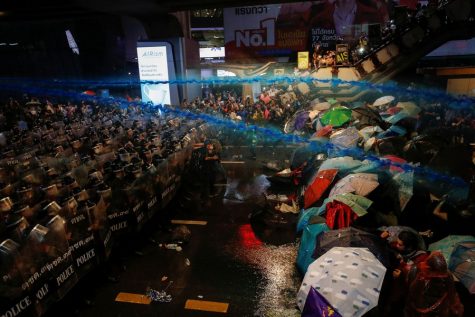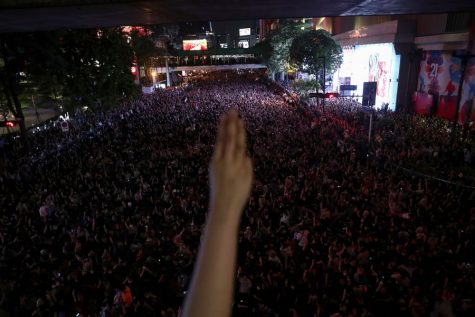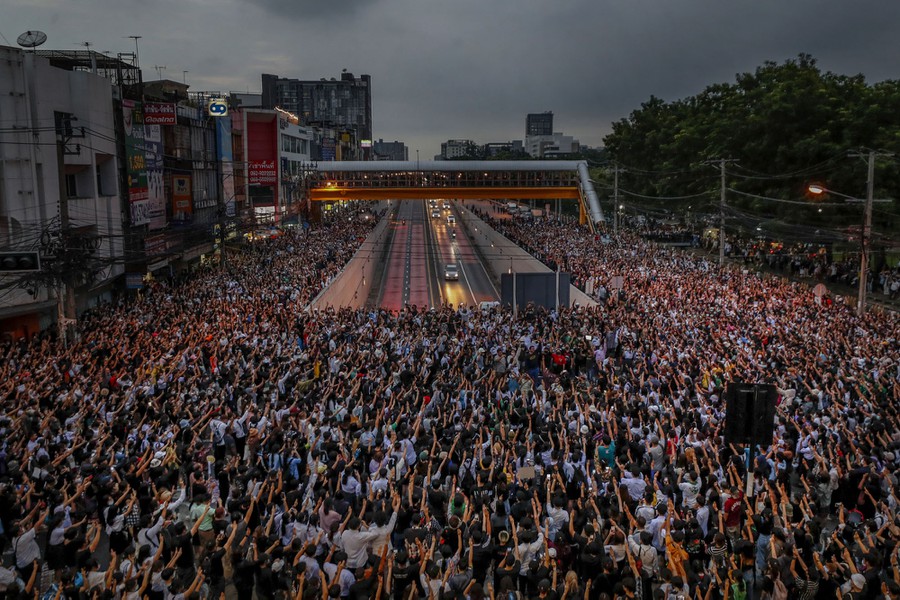Young Thais are Leading Pro-Democracy Protests in Thailand
Pro-democracy activists flash three-fingered salutes during a demonstration
October 23, 2020
Pro-democracy protests led by Thailand’s youth are raging on after beginning in February of 2020.
In March of 2019, there was an election in which many of Thailand’s youth hoped to put an end to the military rule that had been present in their country since 2014. However, Prayuth Chan-Ocha, the military leader serving as prime minister, remained in power after the election. The pro-democracy Future Forward Party, who was favored by the young voters, received the third-largest amount of seats in the parliament. The FFP received a loan from its leader, Thanathorn Juangroongruangkit, which the government then deemed as illegal, forcing the party to disband.
This and the mysterious disappearances of prominent pro-Democracy leaders have resulted in widespread protests. The protesters are requesting amendments to the constitution written by the people of the country, a new election, that the prime minister steps down, and activists to stop being silenced.

The protests took a brief pause due to the COVID-19 outbreak, but on October 14th thousands gathered again near a Government House in Bangkok to continue demonstrating. The next day an emergency order limiting gatherings was declared by the parliament. Despite this, thousands have been gathering every single day since the 14th. Though peaceful, the protesters were met face-to-face with the police force and were shot at with water canons containing teargas. In other attempts to quell the protests, the government halted public transportation and interfered with multiple social media channels. In this same week, Prime Minister Prayuth Chan-Ocha refused to step down from his position, as opposed to the protester’s wishes.

The young people of Thailand are at the front lines, incorporating pop culture into their demonstrations. They’ve taken a Japanese hamster character and the three-finger salute from the Hunger Games and made them symbols of their own rebellion. According to Tamara Loos, professor of history and Thai studies at Cornell, “This is a new generation of protesters, and they grew up with a phone in their hands and access to platforms like Facebook, Twitter, Instagram, and TikTok. In the past the main media outlets were controlled by the army or Thai state authorities, so the government had much tighter control over the message. The protesters today are much savvier about getting their message across.”
There is no clear end in sight, but the parliament is set to hold a meeting discussing how to appease the movement within in the next week.












